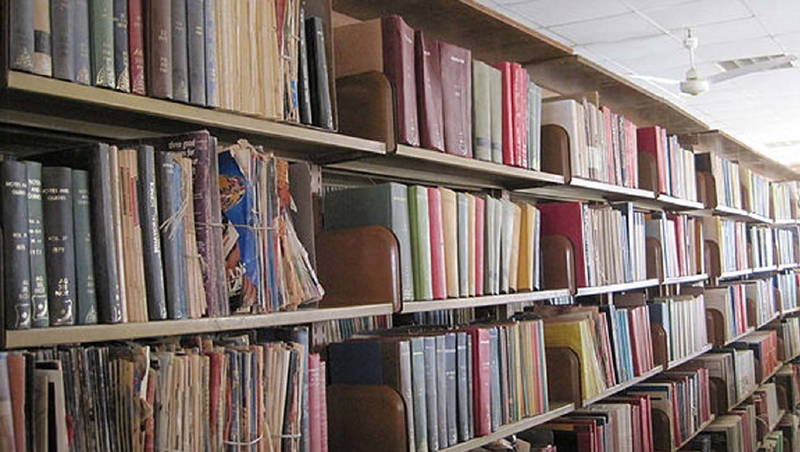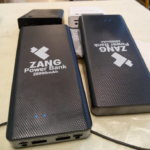In 2014, the World Culture Score Index placed Nigeria among the countries with the lowest reading culture globally. A decade on, the situation remains dire. A 2020 National Bureau of Statistics report indicates the average Nigerian reads less than one book annually. In a country that has produced literary giants such as Chinua Achebe and Wole Soyinka, this decline is troubling.
A multifaceted problem
The reasons behind this are multifaceted, beginning with access. For many Nigerians, books are an expensive luxury. Sarah recalls scrolling through the Facebook page of Rovingheights, a leading Nigerian bookshop, yearning for titles but baulking at the prices. Few books were priced below ₦5,000—a prohibitive sum for the average household.
This financial barrier is compounded by inadequate public infrastructure. School libraries, particularly in primary and secondary institutions, are underfunded and poorly stocked. Public libraries, where they exist, are often too distant to serve rural communities. For families living on the margins, feeding their children takes precedence over buying books.
Technology, too, is a double-edged sword. While it has revolutionised access to information, it has also eroded attention spans and introduced endless distractions. Social media and streaming platforms vie for time once devoted to reading. For a generation accustomed to 30-second reels, a 300-page book is a daunting proposition.
Mobile Libraries
One solution to the accessibility problem has been the rise of mobile libraries. These initiatives take books directly to underserved communities, bridging the gap left by public libraries.
Funmi Ilori, founder of iRead Mobile Library, has championed this cause since 2018. Her fleet of book-filled vans visits schools and communities, bringing literature to children who might otherwise never encounter books beyond their textbooks. “ I advocate for community libraries everywhere. Just as churches are springing up, libraries should be springing up,” she once said.
Similarly, the Drive to Read project has made significant inroads, beginning with the Bethesda School in Lagos. Many more digital initiatives have sprung up.
These mobile libraries address not only access but also the perception of reading as a chore. By offering a mix of academic texts and leisure reading, they show children that books can be both educational and entertaining. While these efforts are commendable, they are not enough to combat other barriers, such as low attention spans and waning interest in reading.
Online Communities of Readers
Book communities are emerging as powerful antidotes to apathy. On platforms like Instagram, TikTok, and X (formerly Twitter), hashtags like #BookTok and #ReadingGoals have created spaces where literature is celebrated. Here, young Nigerians discuss novels, recommend titles, and even debate the heartbreak quotient of books like Ogadinma by Ukamaka Olisakwe and Tomorrow I Become a Woman by Aiwanose Odafen.
These communities are reshaping the narrative around reading. Far from being solitary, reading has become a social activity, fostering bonds over shared stories. Book influencers and clubs are driving a resurgence in the appreciation of both local and global literature. This is not just a trend but a movement, offering hope that Nigeria’s ranking in reading culture might improve.
A Literate Future
The revival of Nigeria’s reading culture is about more than academics; it is about unlocking potential. A literate society is an informed society, and information is power—social, economic, and political. By addressing access through mobile libraries and building communities around books, Nigerians are reclaiming the written word as a tool for empowerment.
As one scholar puts it, “The more that you read, the more things you will know. The more that you learn, the more places you’ll go.”
In Nigeria, the reading culture has significantly declined, with an average Nigerian reading less than one book per year as per a 2020 report. The situation is exacerbated by several factors, including financial barriers that make books an expensive luxury, inadequate public infrastructure like poorly stocked school and public libraries, and the competing distractions from digital technologies.
To address these issues, innovative solutions such as mobile libraries have emerged, bringing books directly to underserved areas. Initiatives like the iRead Mobile Library and the Drive to Read project have made significant strides in improving access to books, particularly by visiting schools and communities. These efforts aim not only to increase access but also to change the perception of reading from a chore to an enjoyable activity.
Additionally, online reading communities on platforms like Instagram and TikTok have fostered a vibrant social aspect to reading through hashtags like #BookTok. These communities encourage discussions and debates about literature, offering a renewed appreciation for local and global books, and turning reading into a shared experience. By addressing both access to literature and building supportive communities, Nigeria hopes to revive its reading culture, ultimately contributing to a more informed and empowered society.






